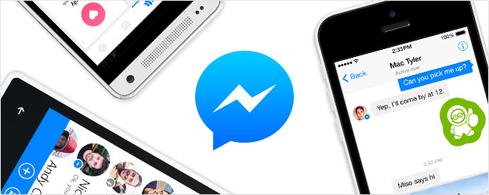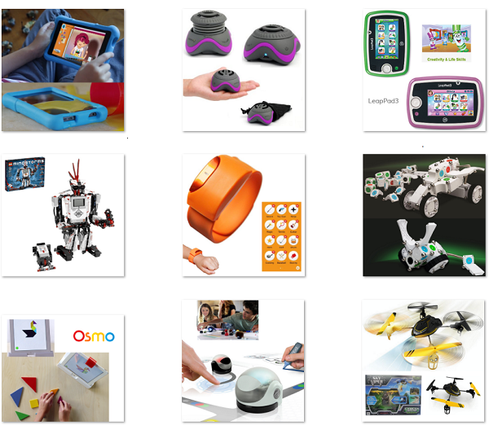Facebook Messenger Nets 500 Million Users
Facebook's rocky rollout of its Messenger app has paid off, with its user base more than doubling since making it mandatory for users who want to chat.


10 Smart Tech Toys For Kids
10 Smart Tech Toys For Kids (Click image for larger view and slideshow.)
Facebook's wildly unpopular move to force Messenger on users is paying off. The social network announced on Monday that its app reached 500 million monthly active users -- more than doubling in size since Facebook uncoupled it from its flagship app.
Facebook first confirmed its plans to kill the messaging feature in its main iOS and Android apps in April. "We have built a fast and reliable messaging experience through Messenger, and now it makes sense for us to focus all our energy and resources on that experience," a Facebook spokesperson told InformationWeek at the time.
But the transition, which began in July, drew the ire of many Facebook users, who complained that downloading a second app was unreasonable. Android users logged nearly 800,000 one-star reviews of the app while the iOS version averaged just a one-star rating after only a few weeks. Ratings have improved slightly since then, as users acclimate to managing both apps.
While nearly half of Facebook's 1.3 billion users worldwide have accepted Messenger, Facebook's decision is still a hot topic. In a Q&A session last week, Facebook CEO Mark Zuckerberg addressed its move to make Messenger mandatory, saying that the standalone app is better and faster than the built-in feature -- as long as all your friends use the app, too.
[Here's what you can and can't control. Read Facebook Messenger: 5 Misconceptions.]
"Asking everyone in our community to install a new app is a big ask," Zuckerberg said. "Asking folks to install another app is a short-term painful thing, but if we wanted to focus on service... we had to build a dedicated and focused experience. This is some of the hardest stuff we do, is making these choices. We realize that we have a lot to earn in terms of trust and proving that this standalone messenger experience will be really good."
Zuckerberg also acknowledged that it wasn't a popular decision among users, admitting that "maybe we didn't handle that as smoothly as we could, in terms of transition."
In April, the company disclosed that Messenger had 200 million users. Seven months later, the app has more than doubled in size -- and remains on-pace to catch WhatsApp's 600 million monthly active users. Facebook acquired WhatsApp earlier this year for $19 billion.
While uncoupling the messaging feature from its main app may not be popular among users, Facebook isn't the only social network to do so. In May Foursquare split into two apps -- one exclusively for check-ins, called Swarm, and its rebranded main app for reviews. LinkedIn has also launched a number of standalone apps that concentrate on singular features, including its Connected and Job Search apps.
As Messenger grows, the social network has continued to invest in its features. Users can make free calls -- including international ones -- over WiFi; send pictures, videos, and voice messages; and use its own set of emoticons, which it calls Stickers.
Facebook also recently hired former PayPal president David Marcus as its VP of messaging products to monetize Messenger's growing user base. Just last month, screenshots surfaced that indicated the app is already equipped to handle person-to-person mobile payments.
Messenger's payment feature reportedly lets users add a debit card or use one already on file. Users start by tapping a button inside Messenger and entering the amount they want to transfer, then tap a button to complete the transaction.
During Facebook's second-quarter earnings call in July, Zuckerberg acknowledged that there would be "some overlap" between payments and its Messenger service, hinting that it could take "multiple years" to get it right.
"The payments piece will be part of what will help drive the overall success and help people share with each other and interact with businesses," Zuckerberg said. "We have a lot of work to do, and we could take the cheap and easy approach and just try to put ads in or do payments and make some money in the short term, but we're not going to do that."
Employers see a talent shortage. Job hunters see a broken hiring process. In the rush to complete projects, the industry risks rushing to an IT talent failure. Get the Talent Shortage Debate issue of InformationWeek today.
About the Author(s)
You May Also Like
How to Amplify DevOps with DevSecOps
May 22, 2024Generative AI: Use Cases and Risks in 2024
May 29, 2024Smart Service Management
June 4, 2024







